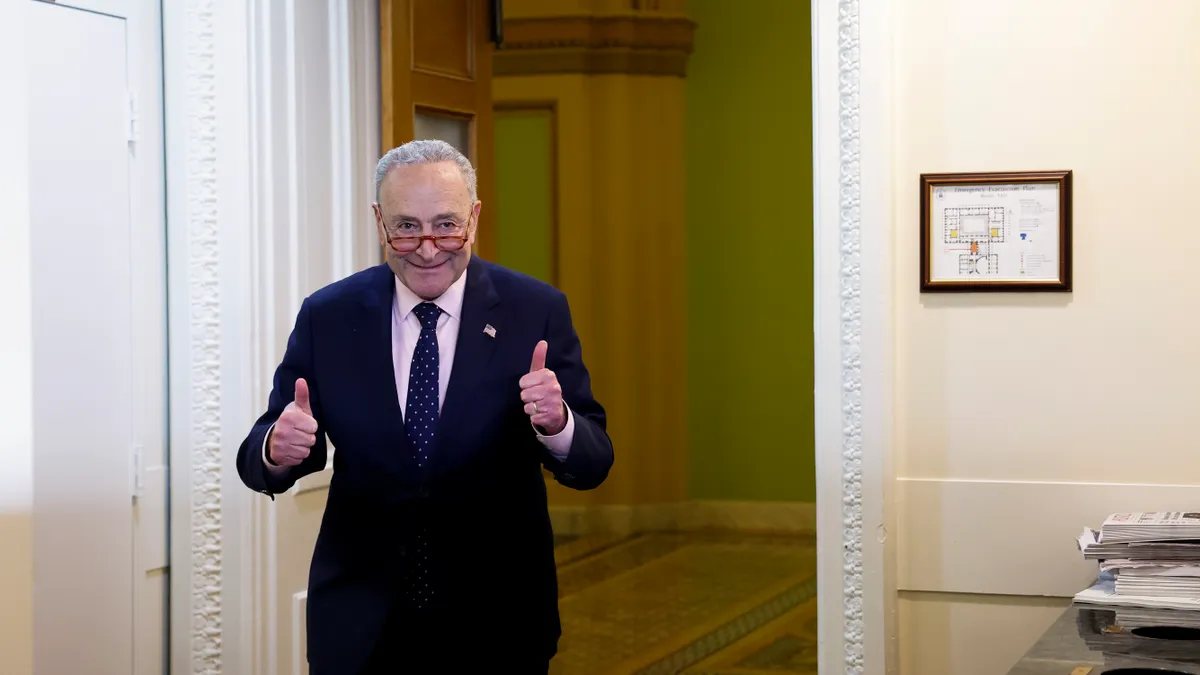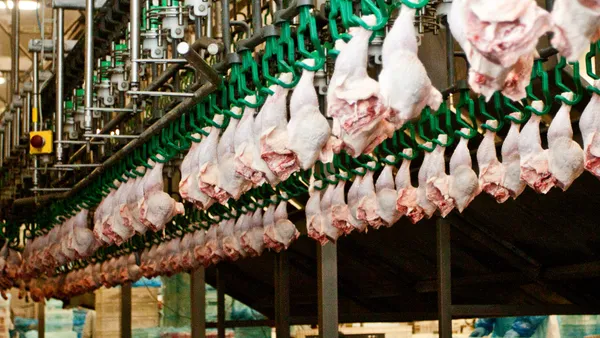Dive Brief:
- The Senate on Wednesday overwhelmingly approved a stopgap spending measure that included a one-year farm bill extension, which agricultural leaders say is necessary to avoid a lapse in critical funding for farmers.
- Lawmakers voted 87-11 to send the funding bill to President Joe Biden’s desk, averting a partial government shutdown before a Friday deadline. The president is expected to sign, despite calling the proposal “extreme” earlier this week.
- In addition to extending the farm bill, the short-term spending package funds various federal agencies. Money for some agencies including the U.S. Department of Agriculture will last until Jan. 19, while other departments will be funded through Feb. 2.
Dive Insight:
Agricultural groups breathed a collective sigh of relief at the news of a farm bill extension, which avoids the prospect of major disruption to the industry and a reversion back to Depression-era law. However, they also were quick to call on Congress to use the additional time to craft a strong farm bill in 2024 that reflects the needs of farmers.
“We are grateful Congress passed a farm bill extension to avoid serious program disruptions and we encourage President Biden to sign it,” American Farm Bureau Federation President Zippy Duvall said in a statement Thursday. “However, we urge both the House and Senate to stay focused on a new, modernized farm bill that recognizes the many changes and challenges of the past five years.”
Passed every five years, the farm bill governs hundreds of billions of dollars in spending on food and farm programs including the Supplemental Nutrition Assistance Program, formerly known as food stamps. Farmers and ranchers have pushed for more money in the next farm bill to provide the agriculture industry with a stronger safety net in the face of inflation and rising input costs.
However, fights over funding — and the ability to find more of it — have held up negotiations. Far-right Republicans have eyed the farm bill as a way to make substantial cuts to nutrition and climate priorities, and many voted against a legislative extension in order to force leaders to address their demands.
Ultimately, Democrats in the House helped shepherd the stopgap funding measure and farm bill extension to Biden’s desk. Many moderate Republicans representing rural areas also voted for the package, which was crafted by newly elected House Speaker Mike Johnson.
“I am dedicated to the passage of a comprehensive Farm Bill reauthorization, but this one-year extension is much better than a lapse in programs,” Sen. Kevin Cramer, a Republican from North Dakota, said in a statement posted to X, formerly known as Twitter. “The committee now has more time and room to negotiate a complete farm bill.”
With the farm bill set until next September, agricultural groups now are focusing their efforts on reaching an agreement to fund USDA and the Food and Drug Administration. Spending for both agencies will expire Jan. 19, and lawmakers have remained at loggerheads as far-right Republicans again demand funding cuts.
“While the [funding] bill gives Congress another year to pass a strong Farm Bill, it only keeps the lights on at USDA and FDA for another two months," Michael Dykes, president and CEO of the International Dairy Foods Association, said in a statement. “IDFA urges Congress to pass a FY2024 funding bill.”











